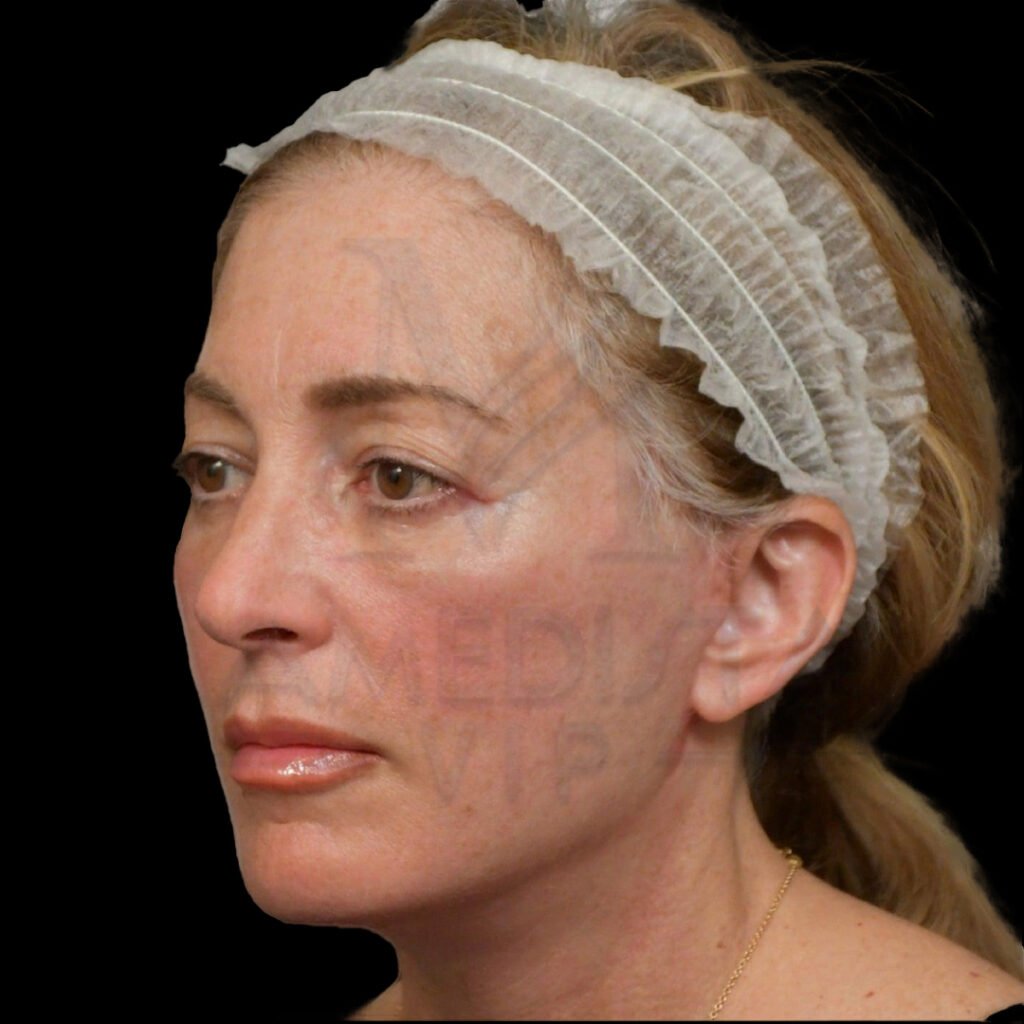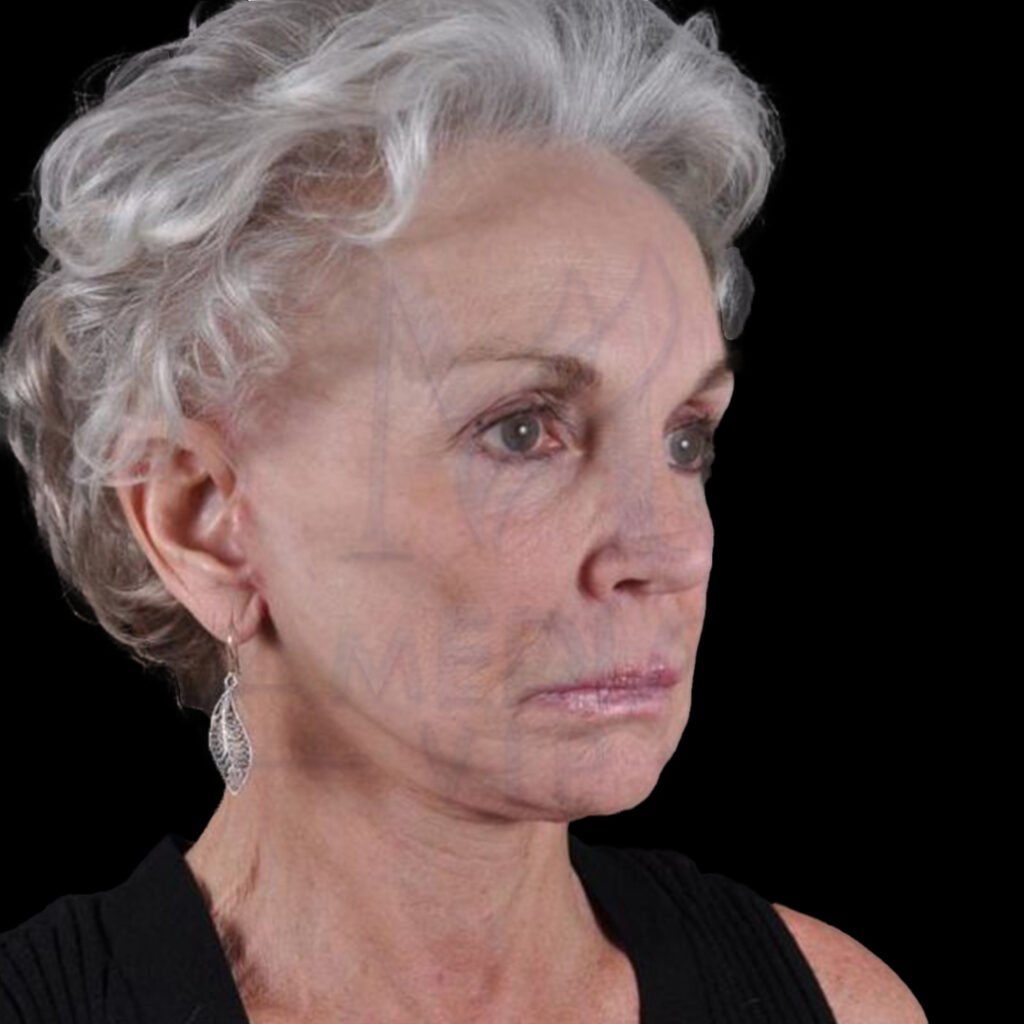Blepharoplasty
What is a Blepharoplasty (Eyelid Left) Surgery
Due to several reasons, such as the environment and the aging process, people’s facial features change. At this point, plastic and cosmetic surgeries come to aid. Blepharoplasty (Eyelid Lift) surgery is a popular cosmetic surgery.
Over time, the muscles around the eyes get weakened. As a result, the upper and lower eyelid and eyebrows may sag, and under-eye bags may occur. An eyelid surgery is a solution for all these issues. Blepharoplasty (Eyelid Lift) in Turkey is a cosmetic surgery that tightens the eyelids by removing the sagging skin, natural creases, and accumulated fats from the lower and upper eyelids and reshaping them to fit the appearance of the eyes.
The procedure takes about two hours and involves both the upper and lower eyelids. In some cases, patients may want to combine the blepharoplasty operation with a brow lift to eliminate the aged appearance fully.
It also has low-risk side effects, such as swelling, but disappears within one or two weeks. The results of the upper lids last for 5-7 years, while it is rare for the person to undergo the lower eyelid surgery again because it lasts for a long time.
Candidates For Blepharoplasty
The candidate for Blepharoplasty should be healthy and have no certain diseases that might hinder Blepharoplasty (Eyelid Lifting) or lead to complications during or after the operation. The most common conditions are:
- Thyroid diseases, Dry eyes, and Hypertension.
- Circulatory disorders and Cardiovascular diseases.
- Diabetic.
- Retinal detachment and Bluewater in the eye.
- The patient must be psychologically stable and expect realistic results.
- The patient must be at least 35 years old.
Pre-Operative Instructions For Blepharoplasty
Some necessary recommendations that the patient must follow before the surgery to lift the eyelids:
- Carry out the required medical tests.
- Take certain medications prescribed by the doctor, which help during the surgery. Inform your doctor about the medications you took before the procedure.
- Smoking should be avoided for at least a month before surgery. Avoid taking aspirin, NSAIDs, or herbal supplements that lead to bleeding and swelling for at least two weeks before the operation.
- Stop taking stimulants, such as Arabic coffee and alcohol, for at least two weeks before the operation because it might hinder the anesthesia process. Avoid taking blood thinners, such as green tea, as they may cause severe bleeding and delay recovery.
Blepharoplasty Stages
There are a few methods for Blepharoplasty (Eyelid Lift). Although there are some outpatient surgeries as well, at Turkeyana Clinic, we use the surgical technique since it gives certain results with higher success rates. The blepharoplasty (Eyelid Lift) surgery procedure has three simple stages:
- Anesthesia: It ensures the patient is comfortable and feels no pain during the operation. The patient is given either general or local anesthesia. Usually, the plastic surgeon chooses the best type of anesthesia that fits the patient.
Post-Operative Instructions For Blepharoplasty
In order to have a healthy and fast recovery period, there are some instructions that you must follow. Some of these necessary instructions days after the surgery are as follows:
- Use ice packs on the eyes for ten minutes every hour to make a cold compress immediately after the operation. Use the ice packs between four to five times a day following your surgery.
- Clean the eyelids nicely using eye drops and certain ointments prescribed by the doctor.
- Refrain from stress or strenuous activity, which might delay recovery for a week after the operation.
- Refrain from swimming for at least one week following the operation.
- Refrain from doing challenging exercises for at least a week after the operation.
- Refrain from smoking for at least a week.
- Refrain from scratching your eyes to avoid any harm.
- Do not use eye lenses for at least two weeks after the operation.
- Wear black glasses to protect your eyelids from any exposure to the sun and wind.
- When you lie down or sleep, you should raise your head more than your chest for a few days after the operation.
- Refrain from taking blood thinners, such as aspirin, ibuprofen, and herbal supplements, for at least a week after the operation because it might lead to bleeding.

Operation Overview !
Hospitalization Duration
1 Night
Stay in Istanbul
3 Days
Return to Activities
3 Days
Anticipated Results
- Months
Before Blepharoplasty Surgery
Planning for eyelid surgery, also known as blepharoplasty, involves thoughtful preparation to ensure a smooth and successful experience. Here are important considerations to keep in mind before undergoing the procedure:
A comprehensive medical evaluation is a crucial step before eyelid surgery. This evaluation helps determine your overall health and whether you are a suitable candidate for the procedure. Additionally, it allows the surgeon to identify and mitigate potential risks. Be transparent about your medical history during your consultations, especially if considering comprehensive procedures like blepharoplasty or facelift surgery. Share information about any pre existing conditions, medications you are currently taking, and any known allergies. This information is vital for tailoring a safe and effective treatment plan that considers your specific health circumstances. Setting realistic expectations is paramount for anyone considering this plastic surgery procedure. While eyelid surgery can achieve remarkable improvements, it’s crucial to have a clear understanding of what can be realistically achieved. Openly discuss your expectations with your surgeon to ensure alignment.
After Blepharoplasty Surgery
Following eyelid surgery, some swelling and bruising are normal on the eyelid skin. This eyelid surgery can be conducted as an outpatient procedure or may require a 1 day stay in the hospital. Depending on the type of plastic surgery, sometimes there may not be a need to stay at the hospital; the doctor’s decision determines the situation. Applying cold compresses and keeping your head elevated can help minimize these effects. Adhering to the prescribed medications is crucial. Your surgeon may recommend pain relievers or antibiotics to manage discomfort and prevent infection.
Shield your eyes from direct sunlight and wind. Wearing sunglasses provides essential protection during the initial stages of recovery. Steer clear of strenuous activities, such as heavy lifting, for the first few weeks. This precaution helps prevent complications and supports the healing process. Regular follow up appointments with your surgeon are essential. These appointments allow your surgeon to monitor your progress and address any concerns that may arise during recovery. If you experience excessive swelling, severe pain, or any unexpected symptoms, contact your surgeon promptly. Open communication ensures a proactive approach to addressing potential issues.
Amazing Result! Blepharoplasty After




